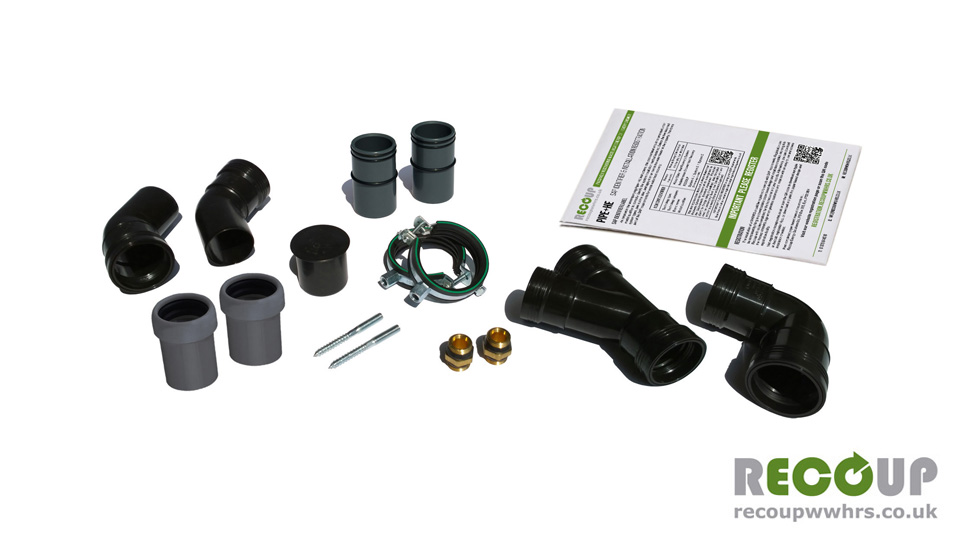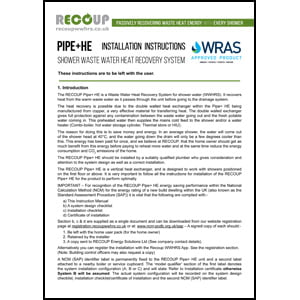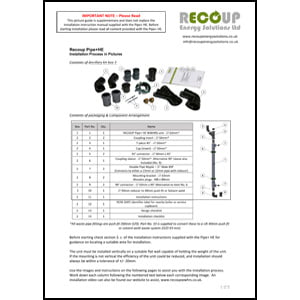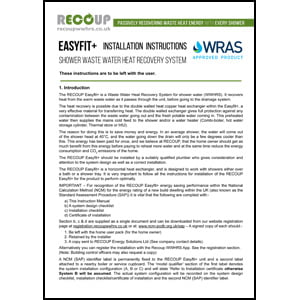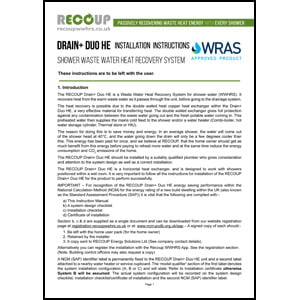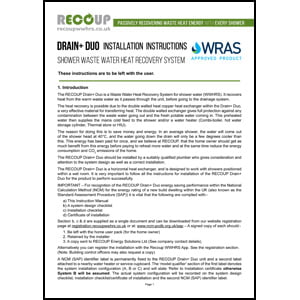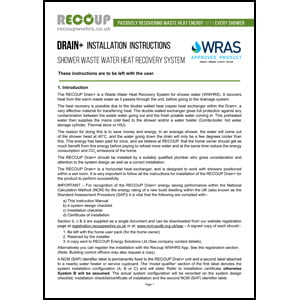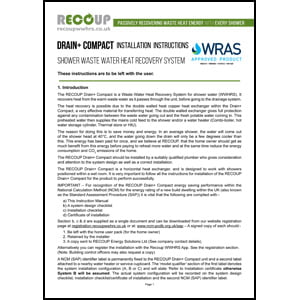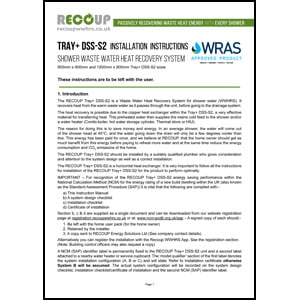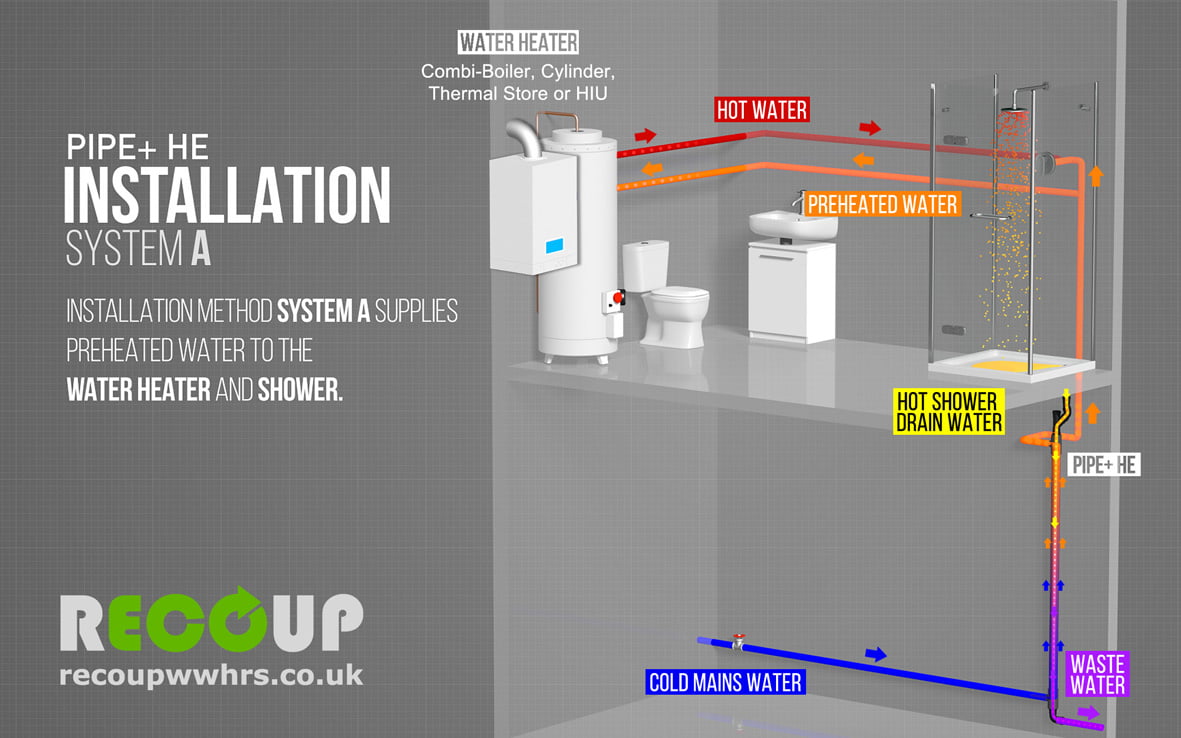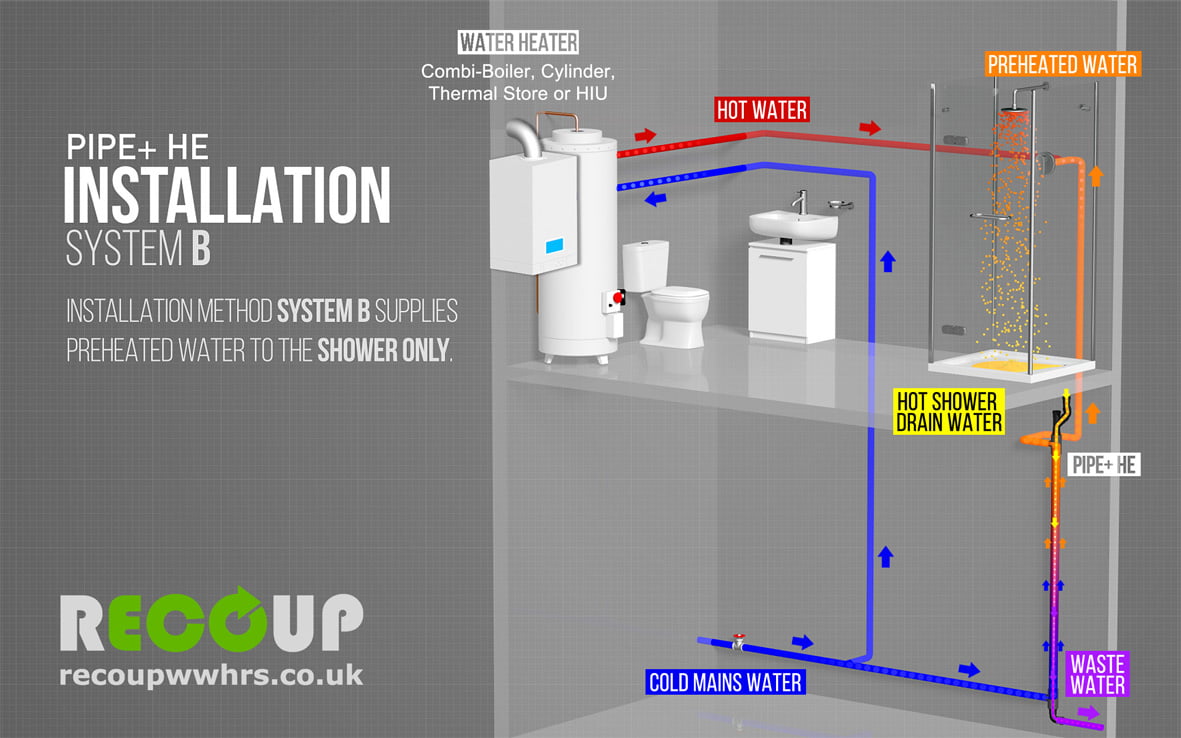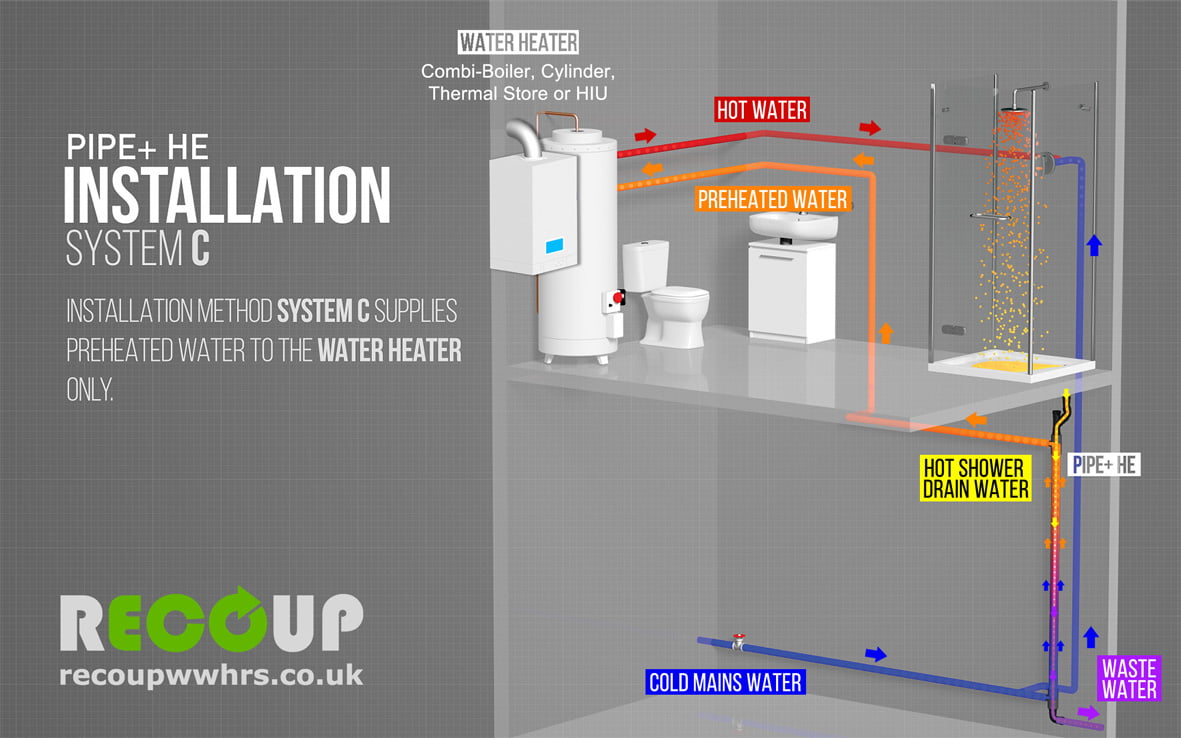Waste Water Heat Recovery for Showers
Recoup Appointed to Two Lots on Greener Futures Partnership DPS
Recoup is proud to announce it has been appointed to two Lots on the Greener Futures Partnership (GFP) Dynamic Purchasing System (DPS) for wastewater heat recovery systems – reinforcing our commitment to advancing sustainable, low-carbon technologies across the UK.
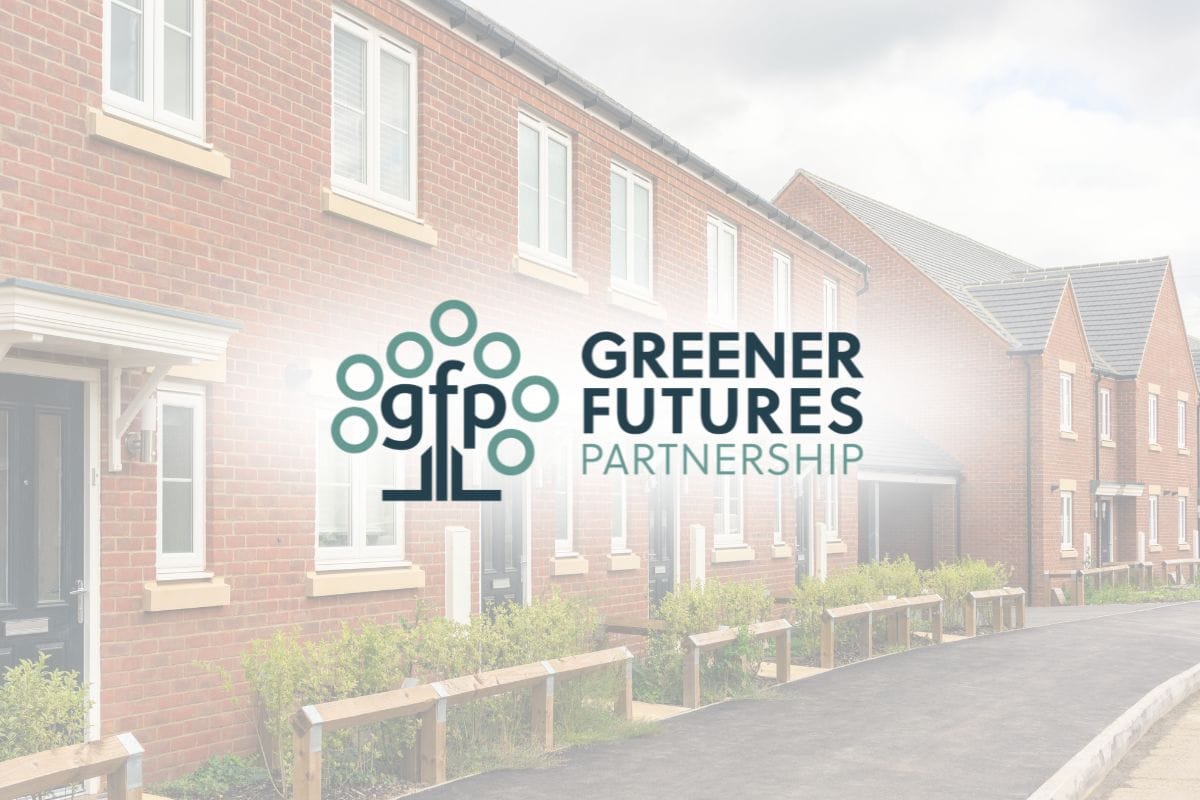
Understanding the Greener Futures Partnership DPS
The three-year GFP DPS, launched in partnership with Abri Group and managed by Pretium Frameworks, is designed to help social housing providers identify and implement innovative solutions that cut carbon and improve energy performance across retrofit and new build projects nationwide.
By providing a structured, compliant route to market, the DPS makes it easier for housing associations and local authorities to access proven energy-saving technologies that contribute directly to the UK’s Net Zero 2050 ambitions.
Recoup Appointed a Place on Two Lots:
- Lot 1 – Energy Saving Products
- Lot 14A – Emerging Products and Technologies
“Being appointed to two Lots on the GFP DPS is a significant achievement for Recoup,” says Caroline Bowler, Head of Residential Decarbonisation at Recoup. “It provides a fantastic opportunity to deliver innovative wastewater heat recovery solutions at scale – helping thousands of homes reduce energy use, lower carbon emissions, and improve sustainability.”
This appointment strengthens Recoup’s position as a trusted partner in sustainable housing, supporting social landlords and local authorities in delivering meaningful progress towards Net Zero 2050 – one shower at a time.
Supporting Social Housing on the Road to Net Zero
The UK government’s Net Zero 2050 target places increasing pressure on the housing sector to reduce carbon emissions, with social housing representing one of the greatest challenges. Many homes across the UK are older, less energy-efficient, and costly to heat, leaving providers balancing the urgent need for decarbonisation with limited budgets and the responsibility to protect residents from fuel poverty.
Heating and hot water account for around 80% of domestic energy use, making them key areas for improvement. Technologies like Waste Water Heat Recovery Systems (WWHRS) offer a practical, low-cost way to capture and reuse heat energy that would otherwise be lost down the drain – improving efficiency without compromising comfort.

